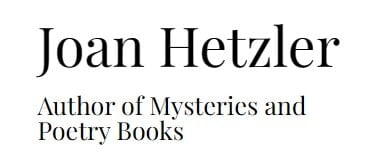Welcome to October. I'm still waiting to receive an evaluation of my screenplay, Life Flows Like Water from the contest judges. The story takes place in the present time and also follows a love story in WWII behind enemy lines.
The present day deals with the conflict of a family putting pressure on an elderly relative to choose euthanasia. The WWII story follows the main character, who as a young woman was a Special Operations Executive agent for Great Britain. She was one of many brave women who trained to go undercover behind enemy lines and help to organize resistance groups. She parachuted at night into the unknown and faced torture and certain death if caught. She did this because she believed in life and freedom.
The title is taken from a line in Jean Anouilh's 1944 stage version of Socrates' play, Antigone. In that play, a young niece of the King insists on disobeying his edict to not bury a traitorous relative. If she does, he will have to execute her. For a principle, she disobeys and faces certain death. He says the young take life for granted and let it flow through their hands like water. She should close her hands because life is precious.
In writing the play, I did extra research on the women of SOE, and they were fascinating women. Some came back alive but some were tortured and killed. One of the tragic stories is of a princess who was undercover in Nazi France and was betrayed by a dual agent in their system. She was tortured and shot. Another was a beautiful young woman who was a mother and before the war worked as a shop girl. She broke her ankle escaping an ambush and lay on the ground shooting to provide cover for her fellow agents to escape before she was captured, tortured, and shot by a firing squad.
There were princesses, a countess, shop girls, mothers, wives, and women of all ages who sacrificed their safety and lives to preserve freedom. One of the most fascinating to me was Nancy Wake, a young girl from New Zealand and Australia who left home on her own in the 1930s to see the world. She became a journalist and lived in France, then married a charming wealthy man on the coast of Southern France. They lived a glamourous and fun life until France surrendered to the Nazis who poured into the country torturing any who opposed them and shipping many to the gas chambers.
Nancy and her husband starting helping Americans and British soldiers and anyone in danger to escape. Nancy became a wanted person by the Nazi's and was called "the white mouse." When they started closing in on her identity, she left for Britain and after 16 attempts managed to climb the Pyrenees with others during a blizzard. She eventually made it to Britain after sailing in dangerous seas that were bombed by Nazi U-boats. Once there she joined SOE and parachuted back into France to help organize resistance groups in the mountains. She parachuted by moonlight from a plane not pressurized with high heels taped to her feet and wearing a cocktail dress hidden by a winter coat and a gun in the pocket and a small suitcase on her back. She wasn't sure what she would encounter and needed to be ready for a party or a fight.
Nancy's husband was supposed to join her but he was captured, tortured and murdered by the Nazis. He had given her jewels and a safety deposit box full of gold but when she made it home after the war, all was gone, and she started over again as a secretary.
Several books, a movie and a tv series have been written about her. Until recently her autobiography was out of print and cost hundreds of dollars but Australia just reissued it and can be bought as an ebook or print book, Nancy Wake: The White Mouse. I've listed some of my favorite books about her, other women in the SOE, and the SOE itself below. Click on the title and it should be linked to the ebook in Amazon.com.
Another woman of interest was Virginia Hall who was an American. At first she worked undercover for Great Britain until America joined the war, then she worked for us. She lived in Nazi-occupied Paris and organized a network that helped hundreds of people to safety. What was amazing is she did all this with the handicap of a wooden leg. She was injured in a shooting accident before the war.
And, of course, there were many brave men risking and losing their lives behind enemy lines. I researched the women because the main character in my screenplay is a woman. Also, women could not officially fight in WWII and if captured the Genova conventions of war did not cover them. They were on their own if caught. Links to books in newsletter.
